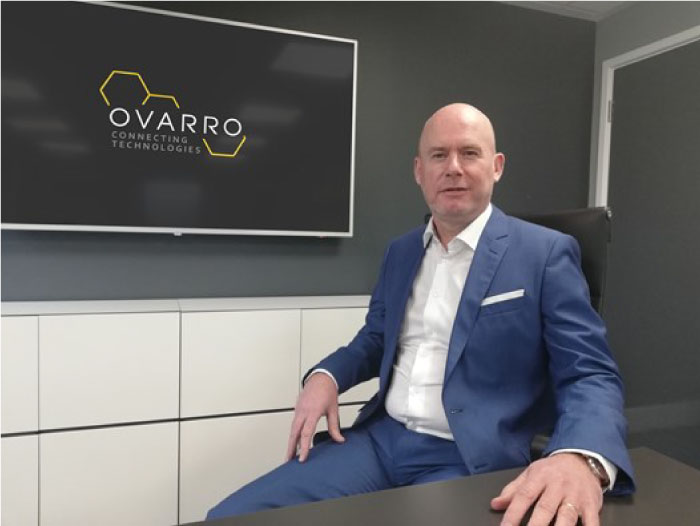1st November 2023
A faster route to improved performance
Water companies’ slow progress on investment in AMP7 is an opportunity to reassess priorities and consider new approaches, writes David Frost, chief executive, Ovarro.

Since Ofwat’s 2022-2023 water company performance report was published last week, finding the majority of companies had under-performed, suppliers to the sector in England and Wales have been thinking about their role in the delivery of the necessary service improvements.
Interestingly, the regulator highlighted a lack of investment in the first three years of the current asset management plan (AMP) period, reporting “most companies have not fully invested their 2020-2023 allowed funding for delivering service enhancements”.
At Ovarro we have seen evidence of this through lower investment in technology against what was expected through the framework procuring processes of AMP6 and the early years of AMP7. It would suggest that the economics of achieving performance outcomes are at odds with incentives set and, given the inflationary environment we are living through, priorities are being reassessed.
In response, technology companies like Ovarro are positioning their offerings to drive increased productivity and efficiency for the water companies, meaning they get a higher performing outcome for the same outlay or less.
From a leakage perspective, Ofwat’s report said while the 2020-25 period has seen some of the fastest rates of leakage reduction in the past decade, most companies reported an increase in annual leakage in 2022-23. This was not unexpected – freeze-thaw weather events hit leakage performance hard. Recovery and delivery of year three targets was always going to prove challenging - the traditional reactive method of deploying more people is not always easy due to availability of skilled technicians.
As-a-service solutions, such as Ovarro’s LeakNavigator, are becoming more widely available and can go a long way towards solving such issues. The models are subscription based, with infrastructure that is entirely managed by an external supplier. LeakNavigator takes complete ownership of the data analysis and leak detection process, with results-driven accountability.
This new way of working is challenging the sector to think differently - and delivering enhanced outcomes. LeakNavigator is recording a combined performance increase of 20-25% in total leaks found, plus a 30% reduction in lost field time through false positives and a point-of-interest -to-leak conversion rate of over 85%.
On the wastewater side, Ofwat said companies need to accelerate actions to reduce pollution incidents and meet their AMP commitments. The sector is mid-flight in rolling out technology to monitor such events and with legacy infrastructure challenges, it is difficult to pivot quickly and get a different outcome. Again, technology is available to help improve performance and it can be implemented quickly.
Ovarro provides SCADA software systems to over half of the UK water companies. From the data we see in SCADA, we have developed software analytical tools to assist in the early detection of spillages from rising main sewers.
This software tool, BurstDetect, minimises the environmental impact of bursts by providing control rooms with instant alerts. This means mitigating action can be taken immediately to limit ecological harm, while reducing the risk of regulatory penalties and reputational damage.
Technology has such a critical role to play in improving performance - here I have outlined just two of the many innovative products now available to water companies - but the pace of change, along with the adoption of new solutions, is frustratingly slow.
Current procurement methods can be prohibitive as technology, such as software tools and artificial intelligence, is advancing so quickly. Framework agreements take time to create, are costly to implement, and often restrict creative ways of thinking and working. In addition, many in the sector choose to undertake their own trials before adopting, when existing case studies clearly show the performance benefits and returns that can be expected.
PR24 submissions are now with Ofwat and the regulator has said it is pushing for a step change in performance and investment. I would like to encourage water companies to be more open about their strategies and the performance commitments made, engage earlier with the supply chain, and influence the investments that we are making into our own roadmaps, so that better outcomes are achieved for all.
The supply chain is ready and willing to support. New services to deliver improved performance in 2023/24 are already available, and implementation can – and should be – fast.
This content is concealed
To access the full article please complete the form